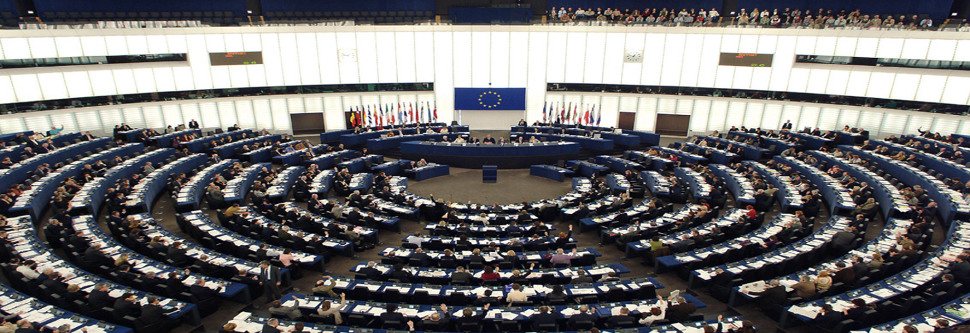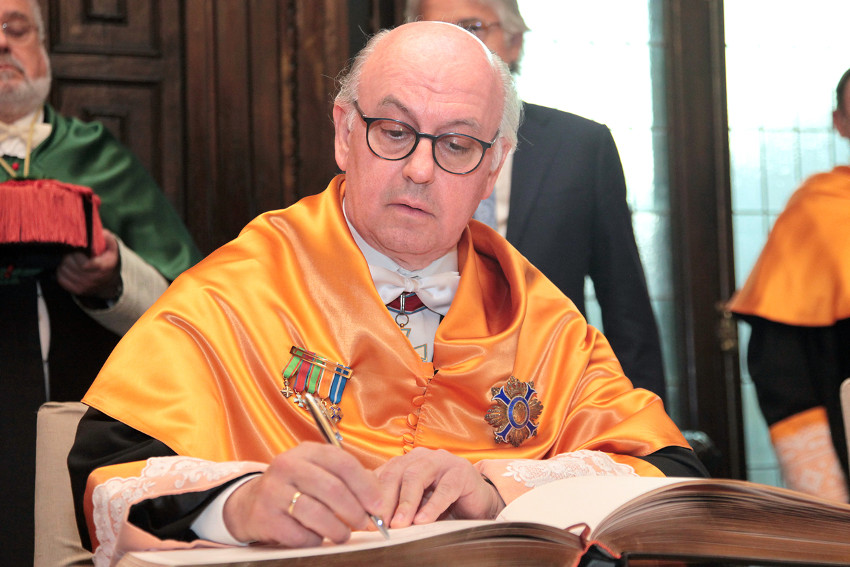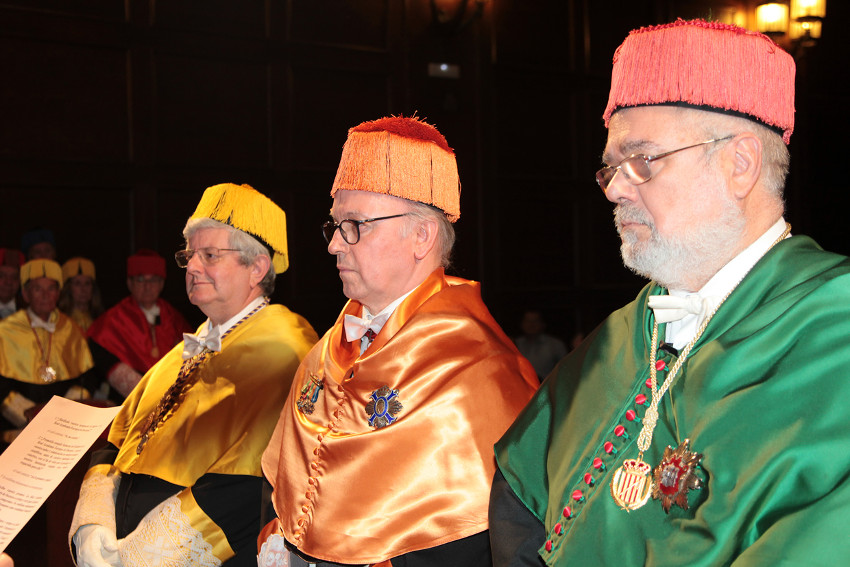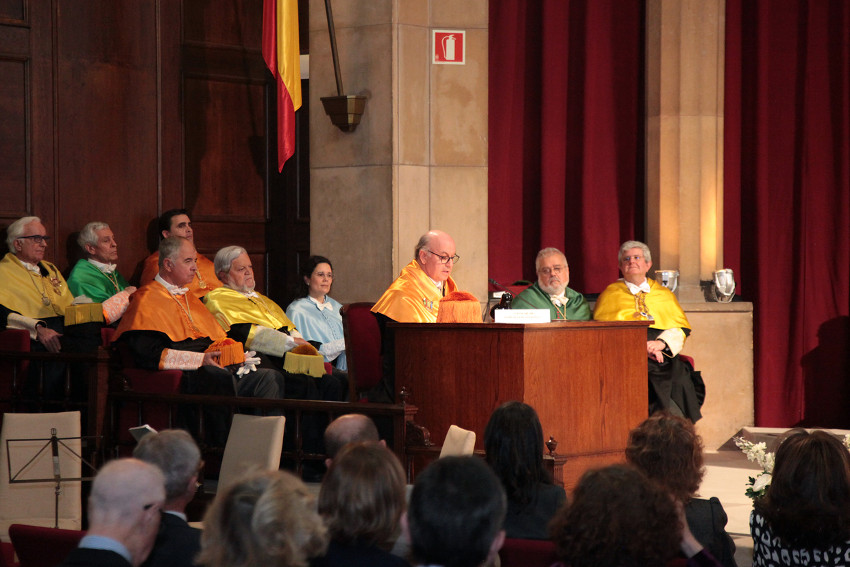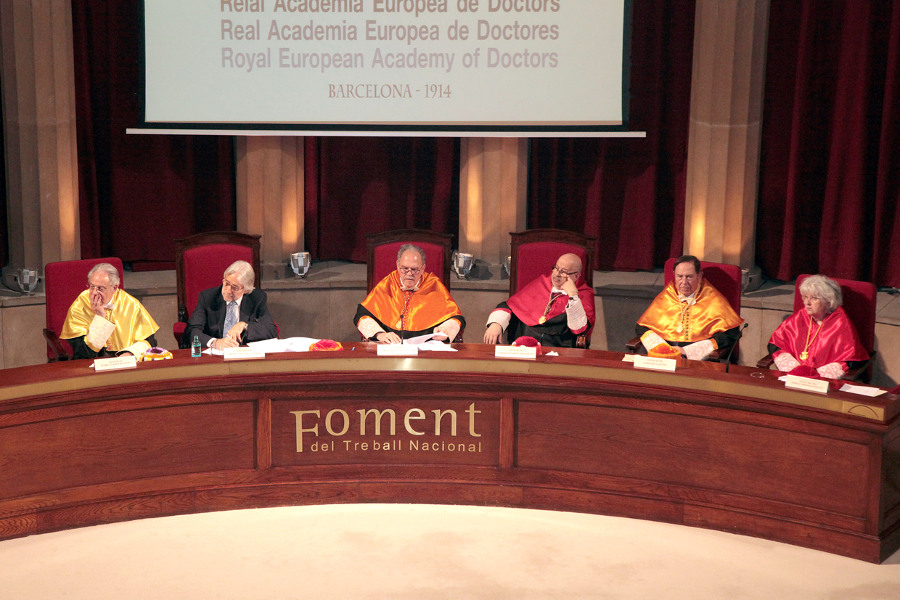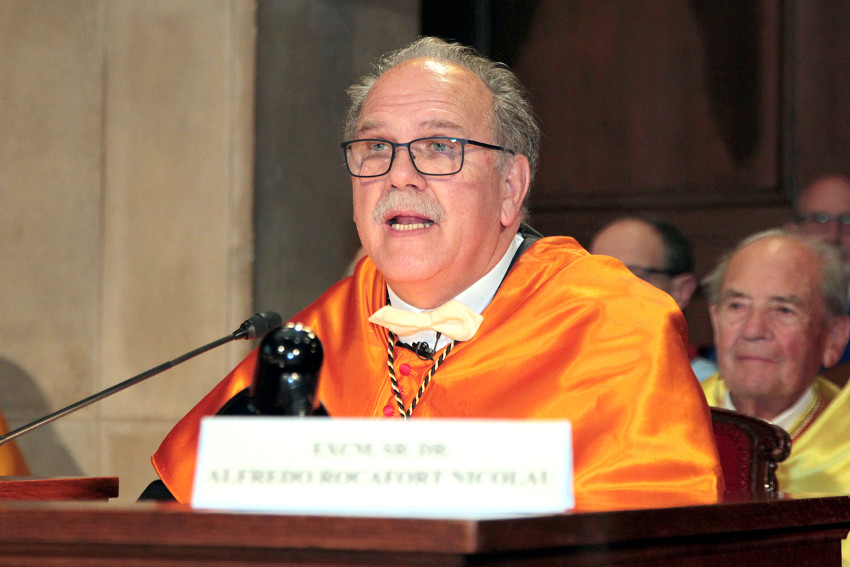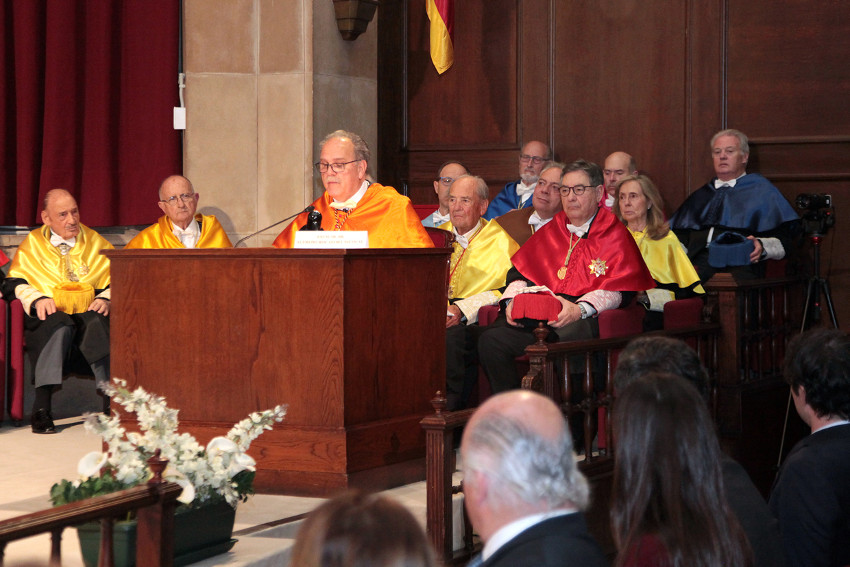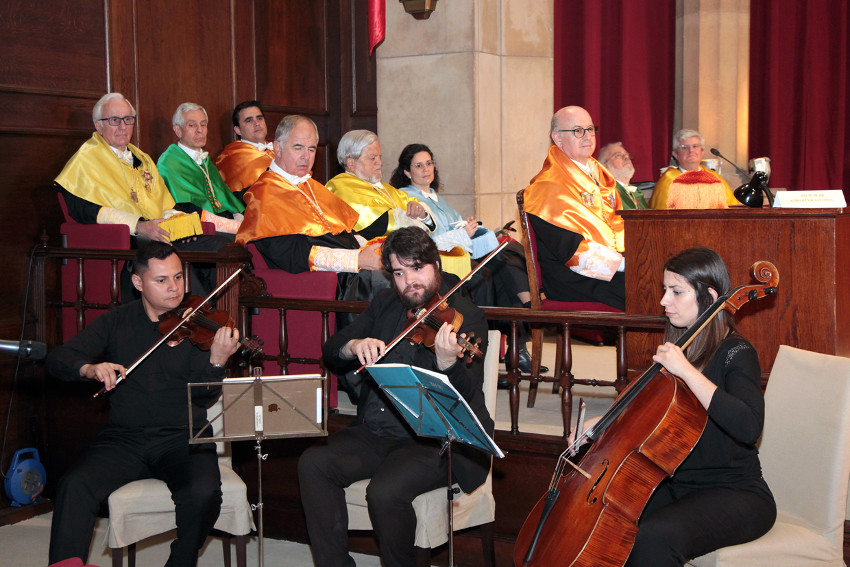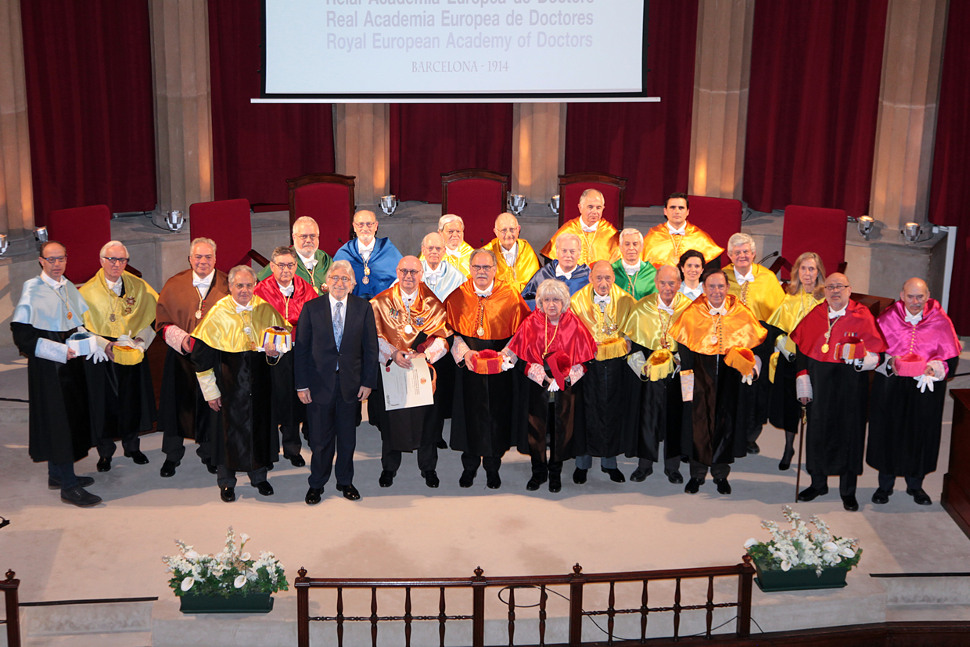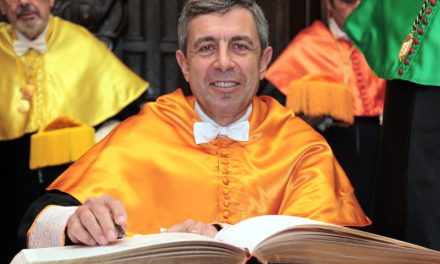Aldo Olcese, president of the Spanish Independent Foundation, enters as a full academician of the RAED
 Aldo Olcese, president of the Spanish Independent Foundation, entered as full academician of the Royal European Academy of Doctors-Barcelona 1914 (RAED) during a ceremony that was held the past Wednesday, March 27, in the Assembly Hall of Catalan Labor National Work Promotion, headquarters of the RAED. The new academician read the admission speech “Los retos de la sociedad civil en una democracia avanzada” (The challenges of civil society in an advanced democracy). Full academician Alfredo Rocafort answered on behalf of the Royal Corporation, as its president. The event was followed by more than 130 attendees and 30 academicians. Doctor in Financial Economics and full academician of the Spanish Royal Academy of Economics and Financial Sciences, Olcese has been for two decades the visible head of the current of economic thought linked to the social responsibility of the company and good corporate governance, which has a pioneer in Spain.
Aldo Olcese, president of the Spanish Independent Foundation, entered as full academician of the Royal European Academy of Doctors-Barcelona 1914 (RAED) during a ceremony that was held the past Wednesday, March 27, in the Assembly Hall of Catalan Labor National Work Promotion, headquarters of the RAED. The new academician read the admission speech “Los retos de la sociedad civil en una democracia avanzada” (The challenges of civil society in an advanced democracy). Full academician Alfredo Rocafort answered on behalf of the Royal Corporation, as its president. The event was followed by more than 130 attendees and 30 academicians. Doctor in Financial Economics and full academician of the Spanish Royal Academy of Economics and Financial Sciences, Olcese has been for two decades the visible head of the current of economic thought linked to the social responsibility of the company and good corporate governance, which has a pioneer in Spain.
The new academician began his intervention with a definition of civil society as simple as accurate: “Civil society is all those who are administered by those who represent the State in its various manifestations”. From there, he highlighted the different forms of articulation of citizenship beyond political parties of all kinds and outlined the endemic evils that have plagued civil society throughout Spain history. “Spain is a country where the weight of politics is overwhelming. The structuring of civil society is weak and generally satellites of political powers or business powers. Many of the civil society entities are clienteled by the money received from the public sector or large companies, and deploy citizenship initiatives that ultimately have purposes of political control or specific business interest and not general. I regret leaving this bad feeling in the air, but only a sincere and constructive realism will allow us to face the problems and evolve towards an advanced democracy”, he said.
For Olcese, that democracy to which Spanish society should aspire must be built from the ground up and established in all its structures, from the company to the media and the Administration of Justice. “It is becoming more and more frequent to hear that the model of representative democracy is questioned by the growing advent of populisms, protected by ‘fake news’ and social manipulation, but also (and is honest to recognize) in an abuse unforgivable of much of the so-called conventional policy in collusion with some of the economic powers”. At this point, for the new academician an advanced democracy is not to be founded “as until now has tended to believe, in a protective state that makes decisions for us even in the essential and intimate, but in the individual responsibility exercised collectively through a participatory and independent civil society, self-sufficient and self-financed by people rather than by institutions”, he considers.
Rocafort, on the other hand, commented on the academic, professional and personal figure of Olcese and was pleased to host him at the Royal Academy, an institution with which he has been collaborating for a long time and to which, in fact, he has been representing in recent months in Madrid from his professional office. “It is difficult to understand our economic and business reality, its evolution and its inflections, without knowing the active participation of Aldo Olcese and the imprint of his regenerationist thinking in the great modernizing reforms of the contemporary Spanish economy, how is the first Reform of the market of Values in the 1980s, the Corporate Governance Reform carried out in 2006, the Public Service Reforms of 2007, the transcendent Reform of the European Financial Markets of 2005, the complex Reform in the field of Intellectual Property and its implication on the Internet in 2011 and 2012. And finally, the Reform of the Electric Sector of the years 2012 and 2013″, said Rocafort of the newly elected member.

